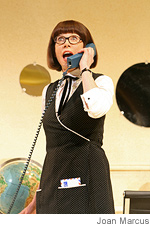My question about the Jane Chord is whether one is permitted, in the many cases in which a book begins with an article, to append the word that follows. I bet Terry’s answer is a gentle no, dear. But how much more fertile the ground of my personal library if this small cheat is granted. To wit:
The Turn of the Screw: “The story stopped.”
If you’re familiar with the particular way Henry James frames his ambiguous tale, or even just with the tale’s central ambiguity, that should give you all the frisson of a coded message arrived from beyond the grave.
What about other James? Doesn’t he just strike you as the kind of writer who would have planted such bonus meaning, in full consciousness of what he was doing? Indeed, a stroll through the corpus turns up a few beauties.
The Awkward Age: “Save tomorrow.”
The Bostonians: “Olive shed.” (!)
The Ambassadors: “Strether’s Strether.” (!!)
James’s memoir of his childhood, A Small Boy and Others: “In gap.”
Somewhere he’s chuckling, I tell you.
E. M. Forster’s epigraph to Howards End famously tells us to “Only connect”; his Jane Chord underlines the sentiment with “One never.” George Eliot’s Daniel Deronda yields the uplifting “Men noble,” while the constitutionally beclouded Thomas Hardy, in Tess of the D’Urbervilles, gives us an “On” to begin and an “on” to end; they beg for an “and” to connect them, or at least a suggestive comma.
I wish I could find my latest copy of Transit of Venus–a book that metes out its secrets as artfully as any, and that I’m certain holds some I haven’t discovered yet. But I’m forever giving that book away. Anyone?

 •
•